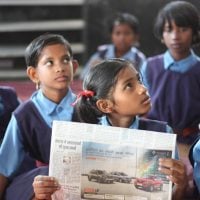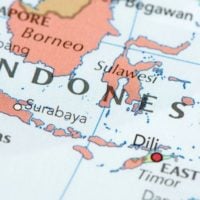Conflict resolution projects play a pivotal role in fostering peace and stability in regions plagued by discord. These initiatives aim to address the underlying causes of conflict, promote dialogue among stakeholders, and facilitate reconciliation processes. In a world where disputes can escalate into violence, the importance of effective conflict resolution cannot be overstated.
Such projects often involve a range of activities, including mediation, negotiation, community engagement, and capacity building, all designed to empower communities to resolve their differences amicably. The complexity of conflicts—whether they arise from ethnic tensions, political disagreements, or resource scarcity—demands innovative and context-sensitive approaches. Conflict resolution projects are not merely about ending violence; they also focus on building sustainable frameworks for peace that can endure over time.
By engaging local communities, these projects foster ownership and ensure that solutions are culturally relevant and widely accepted. As such, they are essential for creating resilient societies capable of managing their disputes without resorting to violence.
The Importance of Donor Agencies in Conflict Resolution
Importance of Donor Agency Support
Without the backing of donor agencies, many vital projects would struggle to secure funding and resources, limiting their reach and impact. Moreover, donor agencies often bring valuable expertise and networks that enhance the effectiveness of conflict resolution efforts. They can facilitate partnerships between local organizations and international experts, ensuring that projects benefit from a diverse range of perspectives and experiences.
Collaboration and Partnerships
This collaboration is essential for developing comprehensive strategies that address the multifaceted nature of conflicts. By supporting conflict resolution initiatives, donor agencies not only contribute to immediate peace efforts but also invest in long-term stability and development. The partnerships facilitated by donor agencies allow for a more holistic approach to conflict resolution, taking into account the unique needs and circumstances of each community.
Long-Term Impact and Stability
The support provided by donor agencies has a lasting impact on the communities they serve. By investing in conflict resolution initiatives, donor agencies contribute to the creation of a more stable and peaceful environment, which is essential for long-term development and growth. This, in turn, can lead to improved living standards, increased economic opportunities, and a more sustainable future for generations to come.
Criteria for Selecting Donor Agencies for Conflict Resolution Projects
When seeking funding for conflict resolution projects, it is essential to carefully select donor agencies that align with the project’s goals and values. One critical criterion is the agency’s mission and focus areas. Organizations should prioritize donor agencies that explicitly support peacebuilding, conflict resolution, or related fields.
Understanding the agency’s strategic priorities will help ensure that proposals resonate with their objectives and increase the likelihood of securing funding. Another important factor is the agency’s funding history and track record in supporting similar initiatives. Reviewing past projects can provide insights into the types of interventions that have been successful and the specific contexts in which they were implemented.
Additionally, organizations should consider the donor’s geographical focus and whether they prioritize funding for specific regions or countries. This alignment is crucial for ensuring that proposals are relevant and targeted effectively.
Top 10 Donor Agencies That Support Conflict Resolution Projects
1. United Nations Development Programme (UNDP): The UNDP is a leading global organization dedicated to eradicating poverty and reducing inequalities through sustainable development. Its focus on conflict prevention and peacebuilding makes it a key player in supporting conflict resolution projects worldwide.
2. The United States Agency for International Development (USAID): USAID provides significant funding for programs aimed at promoting peace and stability in conflict-affected regions. Its commitment to fostering democratic governance and civil society engagement aligns well with conflict resolution efforts.
3. The European Union (EU): The EU supports various initiatives aimed at conflict prevention and resolution through its external action programs. Its funding mechanisms often prioritize projects that promote dialogue and reconciliation among conflicting parties.
4. The World Bank: While primarily known for its development projects, the World Bank also invests in conflict-affected areas to promote stability and economic recovery. Its funding can be instrumental in addressing the socio-economic factors that contribute to conflict.
5. The Open Society Foundations: This philanthropic organization supports a wide range of initiatives focused on human rights, democracy, and social justice. Its commitment to promoting peaceful societies makes it a valuable partner for conflict resolution projects.
6. The Ford Foundation: The Ford Foundation funds initiatives that address systemic inequalities and promote social justice. Its focus on grassroots movements aligns well with community-driven conflict resolution efforts.
7. The Carnegie Corporation of New York: This foundation supports educational initiatives and research related to international peace and security. Its funding often targets innovative approaches to conflict resolution.
8. The International Crisis Group: While primarily a think tank, the International Crisis Group also provides grants for projects that aim to prevent or resolve conflicts through research and advocacy. 9.
The Swiss Agency for Development and Cooperation (SDC): The SDC supports various peacebuilding initiatives globally, focusing on dialogue, mediation, and reconciliation processes. 10. The Norwegian Agency for Development Cooperation (Norad): Norad funds projects that promote peace and security in fragile contexts, emphasizing local ownership and sustainable solutions.
Overview of Each Donor Agency’s Mission and Focus
The United Nations Development Programme (UNDP) aims to eradicate poverty while promoting sustainable development through democratic governance and resilience-building in conflict-affected areas. Its mission emphasizes the importance of inclusive participation in peace processes, making it a vital partner for NGOs working on conflict resolution. The United States Agency for International Development (USAID) focuses on fostering democratic governance, economic growth, and humanitarian assistance in developing countries.
Its commitment to peacebuilding is evident in its funding for programs that enhance civil society engagement and promote dialogue among conflicting parties. The European Union (EU) seeks to promote peace, stability, and prosperity through its external action programs. By supporting initiatives that foster dialogue and reconciliation, the EU plays a significant role in addressing conflicts both within Europe and globally.
The World Bank’s mission is to reduce poverty by providing financial and technical assistance for development projects. In conflict-affected regions, it focuses on rebuilding infrastructure, promoting economic recovery, and addressing socio-economic disparities that can lead to violence. The Open Society Foundations advocate for human rights, democracy, and social justice worldwide.
Their funding supports initiatives that empower marginalized communities and promote peaceful coexistence among diverse groups. The Ford Foundation aims to address systemic inequalities through social justice initiatives. By supporting grassroots movements focused on conflict resolution, it contributes to building more equitable societies.
The Carnegie Corporation of New York emphasizes education as a means to promote international peace and security. Its funding often targets innovative research and educational programs related to conflict resolution. The International Crisis Group conducts research and advocacy aimed at preventing conflicts worldwide.
While primarily a think tank, it also provides grants for projects that align with its mission of promoting peaceful resolutions. The Swiss Agency for Development and Cooperation (SDC) focuses on enhancing dialogue, mediation, and reconciliation processes in fragile contexts. Its support for local initiatives underscores its commitment to sustainable peacebuilding.
The Norwegian Agency for Development Cooperation (Norad) prioritizes funding for projects that promote peace and security in fragile contexts. Its emphasis on local ownership ensures that solutions are culturally relevant and sustainable.
Success Stories of Conflict Resolution Projects Supported by Donor Agencies
Numerous success stories illustrate the impact of donor agency support on conflict resolution projects around the world. One notable example is the work done by UNDP in Colombia, where it has facilitated dialogue between government representatives and former combatants from the Revolutionary Armed Forces of Colombia (FARC). Through community engagement initiatives funded by UNDP, former combatants have been reintegrated into society, contributing to local development while fostering reconciliation among communities affected by decades of violence.
Another inspiring case is USAID’s support for peacebuilding efforts in Myanmar. By funding training programs for local mediators and facilitating dialogue between ethnic groups, USAID has helped reduce tensions in areas previously marked by conflict. These initiatives have empowered communities to address their grievances peacefully while promoting understanding among diverse groups.
How to Apply for Funding from Donor Agencies for Conflict Resolution Projects
Applying for funding from donor agencies requires careful planning and preparation. Organizations should begin by thoroughly researching potential donor agencies to identify those whose missions align with their project goals. Once suitable agencies are identified, applicants should review their specific funding guidelines, eligibility criteria, and application processes.
A well-crafted proposal is essential for securing funding. It should clearly articulate the project’s objectives, target beneficiaries, expected outcomes, and implementation strategies. Including a detailed budget that outlines how funds will be utilized is also crucial.
Additionally, organizations should highlight any previous successes or relevant experience in implementing similar projects to demonstrate their capacity to deliver results.
Tips for Building Successful Partnerships with Donor Agencies for Conflict Resolution Projects
Building successful partnerships with donor agencies requires effective communication, transparency, and mutual respect. Organizations should engage with potential donors early in the project development process to understand their priorities better and tailor proposals accordingly. Establishing open lines of communication fosters trust and demonstrates a commitment to collaboration.
Regular updates on project progress are essential once funding is secured. Providing donors with reports on achievements, challenges faced, and lessons learned not only keeps them informed but also strengthens relationships for future collaborations. Additionally, organizations should seek feedback from donors on proposals or project implementation strategies to enhance future applications.
In conclusion, conflict resolution projects are vital for promoting peace in diverse contexts around the globe. Donor agencies play an indispensable role in supporting these initiatives through funding and expertise. By carefully selecting appropriate donor partners, crafting compelling proposals, sharing success stories, and fostering strong relationships with donors, organizations can significantly enhance their capacity to implement effective conflict resolution strategies that lead to lasting change.









































